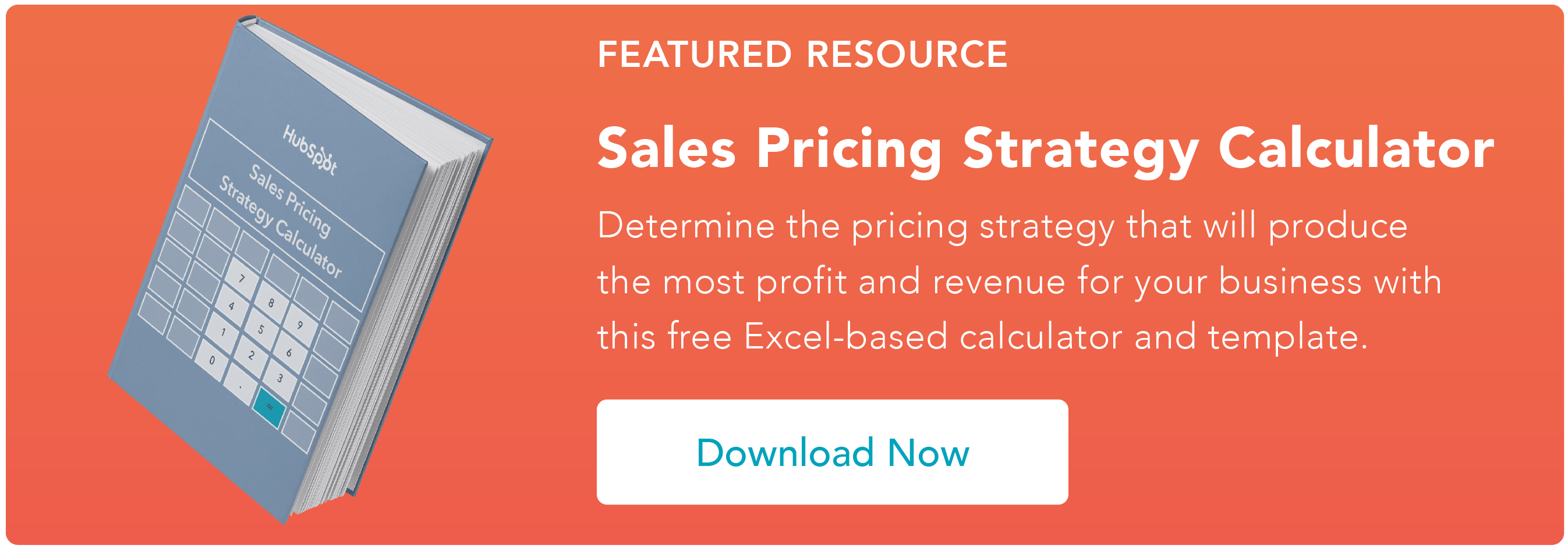The Best Answers to "How Much Does It Cost"
Be totally upfront.
According to HubSpot Senior Account Executive Nicole Bhatia, honesty is the best policy when confronted with this question.
She says, "It's simple — when someone says, 'Just tell me the price,' I just tell them the price. Someone who says that clearly has their guard up. This person likely doesn't want to be sold. You won't get anywhere trying to dissuade them from jumping right into pricing. They'll likely dig their heels in even further and feel like you're hiding something."
She points out that you can't force a prospect into being a good fit for your product or service — particularly when it comes to price. She says, "After six years in sales, I know that no matter how good of a salesperson I am, I can't work magic. I can't magically make them have more money. If my product is far outside of their budget it's better not to waste either of our time."
Try to get a better feel for a prospect's circumstances.
When discussing pricing, it helps to have a holistic picture of where your prospect is coming from. You need to understand their situation as best as you can before you can have a meaningful conversation on the subject.
As HubSpot Account Executive Stefanie Ibarguen puts it, "It's usually not a one-size-fits-all discussion. Each business has different requirements when it comes to contract terms that align with how they operate. I would need to know more about their requirements, what packaging best fits their needs, and other relevant terms to give them a more specific estimate"
Principal Account Executive Anna Rofsky suggests that salespeople take more time to understand the nature of a prospect's business operations, perspective, and broader circumstances.
According to her, "If a sales rep is really in sales for the right reasons, then they're encouraged and excited — they're there to help you figure out what solution is best for you. It's like walking into Urban Outfitters looking for jeans and asking a sales rep 'for the price.' What then? It's very unlikely they'll select a random pair and tell you they're $89.
"No, it's much more likely they will ask questions around color, style, and any applicable sales. That way, they can point you in the direction toward what you actually want. That's the role of a salesperson — strategic guidance on what is best for you — not a dollar amount to throw around."
Push for a more thorough conversation.
As an extension of the point above, the experts we reached out to generally agreed that a prospect's concerns about price warrant a thorough conversation.
Inbound Sales and Digital Marketing Expert Michael Grinberg says, "Typically when a prospect asks you to just tell them the price, they are asking this question to simply gauge if they should even take another call. With a freemium or a free trial model, an easy way to navigate this objection is to say, '[Prospect], as a fellow consumer I understand that you need to know the price to understand if our product is even viable for your company.
"We offer ways to get started with our products for free, and some of our customers are paying us as much as $50,000/monthly. The last thing either of us wants is for you to get an inaccurate quote, so would you be open to scheduling another call where we nail down the use case, and then I can give you an accurate price that most closely resembles your current needs?'"
One way or another, it serves you to further discuss both the nature of their needs and how you can best accommodate them. Both sides of that conversation will be helpful and telling in terms of the kind of pricing structure you can present to them.
If you don't have enough information to offer them a meaningful estimate, don't just throw out some arbitrary, potentially misleading figure. Push for some more context via a more concentrated conversation — one that can inform a legitimate, accurate "how much does it cost" answer.
A prospect being blunt and hitting you with, "Just tell me the price," can be imposing, but it doesn't have to throw you off your game. If there's anything to take away from this article, it's that honesty and pushing for more context are the best policies.
Be upfront with them immediately if you can, but if you need more information to present a fair, accurate estimate, ask for it. Try to have a more thorough conversation to understand your prospect's business operations and the needs that come with them.
Pricing Strategy
.png?width=112&height=112&name=Image%20Hackathon%20%E2%80%93%20Vertical%20(45).png)








![Price Skimming: All You Need To Know [+ Pricing Calculator]](https://53.fs1.hubspotusercontent-na1.net/hubfs/53/price-skimming-strategy.jpg)

.jpg)
![B2B Pricing Models & Strategies [+ Pros and Cons of Each]](https://53.fs1.hubspotusercontent-na1.net/hubfs/53/b2b-pricing-models-and-strategies.jpg)